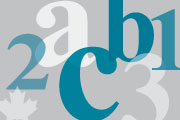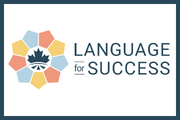
Adaptability
Discover the language in Adaptability
Adaptability requires communicating with others in a way that conveys responsibility and flexibility in response to changing circumstances. It involves listening, speaking, reading and writing, often in combination; for example:
- Listening while conveying openness and willingness to consider alternative points of view and changing needs and priorities.
- Asking questions to understand changing circumstances, evolving responsibilities, or new concepts.
- Sharing intentions, timelines and schedules to communicate an understanding of shifting responsibilities.
- Adjusting vocabulary, tone, and demeanour to respond effectively to different people and situations.
- Responding to requests from others efficiently and with flexibility; giving reasons when refusing requests, and offering alternatives.
- Negotiating priorities or the sequencing of tasks in a cooperative manner, considering the diverse needs presented by situations or individuals.
- Finding and exploring resources and supports to adapt to instability or change.
Explore work-related examples at each CLB stage
The Canadian Language Benchmarks (CLB) describe communicative ability in English as a Second Language (ESL). The CLB organize 12 benchmarks into three stages of ability: Stage I (Basic), Stage II (Intermediate) and Stage III (Advanced).
Learners may already possess Adaptability skills but lack the English language to demonstrate them. For this reason, there is no direct correspondence between Adaptability and CLB levels.
The examples below show the language involved in demonstrating Adaptability.
![]()
Use simple phrases and non-verbal signals to convey a willingness to complete a new task.
![]()
Listen to brief instructions for completing a new task; respond with non-verbal signals that convey interest; ask questions or request repetition or reformulation to understand.
![]()
Listen to a simple suggestion from a co-worker to try a faster way of completing a routine task; respond with interest.
![]()
Give instructions to a new worker on how to perform a simple work task; adjust rate of speech so the employee understands.
![]()
Write a few sentences to update a supervisor about how a new work task is going.
![]()
Read a brief notice to learn the new date and time for an upcoming meeting; respond by expressing willingness to change your schedule.
![]()
Listen to a team member describe their needs; respond with open-ended questioning, active listening, paraphrasing and summarizing to fully understand their perspective.
![]()
Respond to an irate customer with a calm demeanor; use expressions to express empathy, and open-ended questioning to learn about the details.
![]()
Listen to a supervisor’s feedback on work performance; respond by communicating how this feedback will influence future efforts.
![]()
Read an email request from a supervisor; respond with a polite refusal, an explanation, and an offer to consider it in the future.
![]()
Read a message from a supervisor who is off sick; respond with empathy and offer a suggestion to assist.
![]()
Listen to arguments for and against a departmental restructuring; contribute by paraphrasing salient points, expressing consideration for the consequences on employees, and making suggestions for a way forward.
![]()
Respond to misunderstandings, communication issues and emotional reactions at work with a calm demeanour, open-ended questions, active listening and diplomacy.
![]()
Adjust your managerial style (e.g., collaborative, hands-off, authoritative) based on the particular needs of employees.
![]()
Explain a workplace change to employees; adapt, summarize and clarify information as needed, and respond to positive and negative feedback.
![]()
Find relevant resources and read to learn about the skills required in a new work role; seek additional support as required to adjust to the demands of the new role.
![]()
Interpret staff attitudes about a workplace policy shift; write a memo that provides a rationale and mitigates staff concerns.









